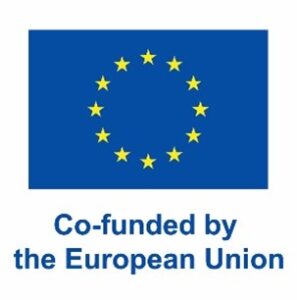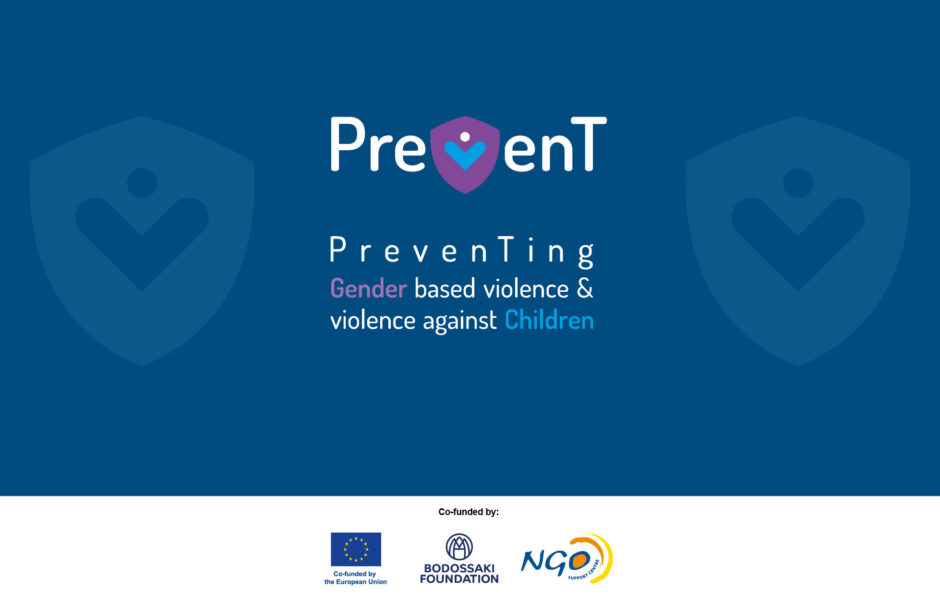Open call for expressions of interest in submitting project proposals for funding
The Bodossaki Foundation, in its capacity as co-funder and coordinator, alongside the NGO Support Centre (Cyprus), is announcing an open call for expressions of interest from Civil Society Organisations to submit project proposals for funding. This is part of the ‘PREVENT – Preventing gender-based violence and violence against children’ Programme, which aims to fund around 28 projects in Greece and 9 in Cyprus over a period of three years.
PREVENT intends to support Civil Society Organisations (CSOs) in Greece and Cyprus which are active in preventing and combating gender-based violence and violence against children. The programme also seeks to consolidate the knowledge, capacities, and longer-term sustainability of these organisations. PREVENT is co-funded by the European Union, through the Citizens, Equality, Rights and Values (CERV)* 2023-DAPHNE programme, the Bodossaki Foundation and the NGO Support Centre, with a total grant of €2.3 million.
The open call for expressions of interest, titled ‘Preventing and Combating Gender Based Violence and Violence against Children’, seeks to provide financial support to organisations implementing actions aimed at preventing and combating gender-based violence and violence against children. The primary beneficiaries of the programme include women victims/witnesses of gender-based violence, child victims/witnesses of violence, frontline professionals, and policymakers at both national and European levels.. Interested organisations can submit their applications at the Bodossaki Foundation’s Programme Portal by 17:00 on 25 September 2024.
The launch event for the programme will take place on 5 June at the Benaki Museum (138 Pireos Street) and registration can be made here.
The project also offers capacity building and professional support activities for CSOs in Greece and Cyprus, facilitated by Social Dynamo, the NGO Hub of the Bodossaki Foundation. Social Dynamo embodies the Bodossaki Foundation’s vision for a vibrant and effective Civil Society that takes action, influences, and mobilizes. Since its inception in 2017, Social Dynamo has welcomed over 12,000 CSO representatives and supported the organizational empowerment of more than 1,400 CSOs across Greece.
The 2023 report by the European Institute for Gender Equality (EIGE) highlights the urgent need for a new programme with associated funding, as it ranks Greece 24th out of the 27 European Union member states (4th from the bottom) in terms of gender equality. Furthermore, the Council of Europe estimates that 1 in 5 children in Europe experience some form of sexual violence at least once, with girls being the most frequent victims.. The Bodossaki Foundation has also documented the vital need to support the development of organisations throughout the country which are active in the field of gender equality.
For the Bodossaki Foundation, the promotion of gender equality in Greece is of primary importance. To this end, it has made a number of grants to organisations active in the field, and has supported the General Secretariat for Demographic and Family Policy and Gender Equality, undertaking initiatives to promote gender equality in the workplace. The Bodossaki Foundation is also a member of the Alliance for Gender Equality in Europe.
More information can be found at the following link: https://tinyurl.com/2xum54m3
*The Citizens, Equality, Rights and Values (CERV) programme was launched in 2021 under the European Union’s Justice, Rights and Values Fund for the period 2021-2027.
 Funded by the European Union. Views and opinions expressed are however those of the author(s) only and do not necessarily reflect those of the European Union or the European Commission. Neither the European Union nor the European Commission can be held responsible for them.
Funded by the European Union. Views and opinions expressed are however those of the author(s) only and do not necessarily reflect those of the European Union or the European Commission. Neither the European Union nor the European Commission can be held responsible for them.



